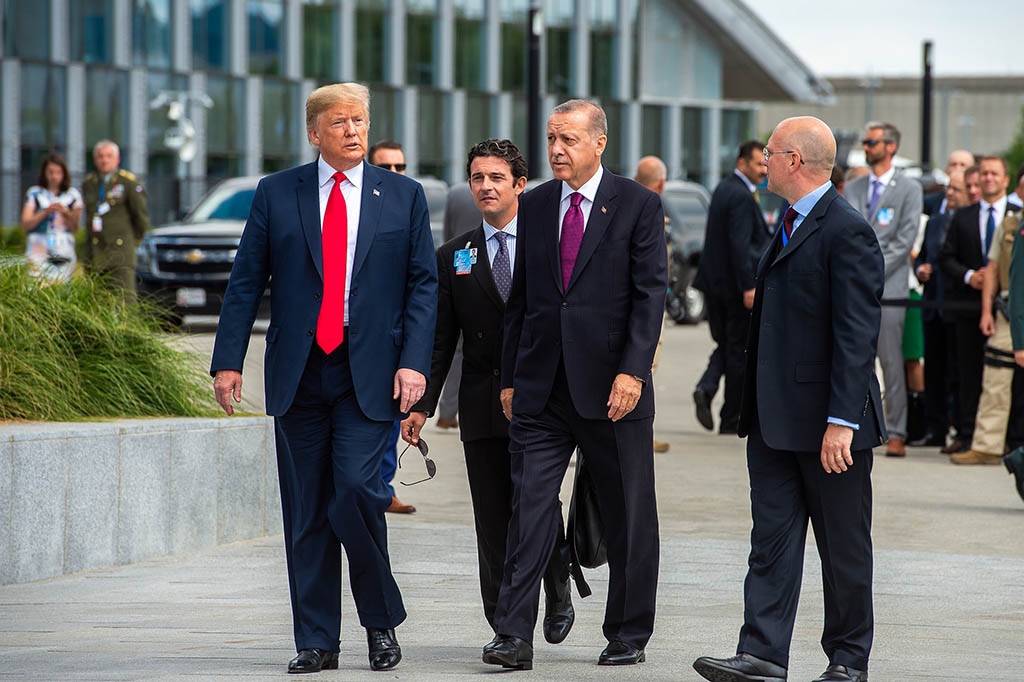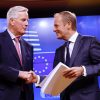
When looking at the recent past in world politics, not only has Britain voted for Brexit and the US electorate chose Donald Trump for the world’s most powerful office, but there has been a noticeable democratic regression in both the EU and NATO. Autocratic tendencies and nationalism have made a strong comeback on both sides of the Atlantic and, more worryingly, it looks like the trend is here to stay. As the very roots of liberal democracy are being challenged there is a growing uncertainty regarding the future of both NATO and transatlantic relations. Even if NATO endures –despite Donald Trump considering it ‘obsolete’–, its future is by no means assured, as it is being questioned precisely by the leaders of the two countries with the alliance’s largest armed forces: Turkey and the US. Both Erdoğan and Trump are fervent proponents of putting their ‘countries first’, causing grave concern among their allies because of their capricious foreign and security policy decisions. It is important to highlight the similarities between the two leaders, as they might help to map out broader trends: the personalisation of politics, the undermining of institutions and of multilateralism and the impact of all this on foreign and security policy.
From the very early days of Donald Trump’s campaign and especially since his election in November 2016 it became clear that things would change and old school diplomacy would be a thing of the past. His tendency to question already existing multilateral agreements –he has taken the US out of the Paris Climate Agreement, the United Nations Human Rights Council, the Joint Comprehensive Plan of Action (also known as the Iran nuclear deal) and the Intermediate-Range Nuclear Forces Treaty (INF) with Russia– opened up a new era of uncertainty in transatlantic relations. The outbreak of trade wars and challenges to the World Trade Organisation (WTO) has made the picture even more worrying. Trump’s complaints about ‘sharing the burden’ and his defiant tone towards his European counterparts –that flare up from time to time, having even called the EU a ‘foe’ prior to the NATO Summit in the summer– have added further tension to the relationship. This has led European governments to start reconsidering their security and defence arrangements, although there is clearly no consensus in the EU about the future of its defence strategy or how to design a more proactive foreign policy. Nevertheless, some slight progress has been made: Frontex has been redefined as the European Border and Coast Guard Agency, Permanent Structured Cooperation (PESCO) has been established and a European Intervention Initiative (EI2) has been created. All these measures are relatively timid moves towards a greater ‘strategic autonomy’, as stated in the EU’s Global Strategy. French President Emmanuel Macron, recently backed up by Chancellor Angela Merkel, has also expressed the need for a ‘truly European army’.
However, the problem is not just achieving strategic autonomy. The modus operandi itself is also changing: ad-hoc alliances may be the pattern of the future while partnerships that have endured for decades will be placed under ever greater stress. Emerging powers such as China and Russia are acquiring or regaining influence. There is also a structural transformation of power that is very much connected to the personalisation of politics. It is no longer a case of institutions –with decades of experience– shaping foreign policy but rather the whims of powerful individual leaders.
Turkey’s President is also a good example. The country became a member of NATO in 1952, immediately after the alliance’s establishment in 1949. It was considered by the US an important ally from the very beginning because of its geostrategic position and the vital role it played in the Cold War. It was named as a candidate to join the EU in 1999. However, its relationship with its Western allies has undergone significant ups and downs and has become even more complex over the past decade. Following the elections in June 2018 the country has acquired a very powerful presidential character. Much can be said about the system but one of its most important features is its impact on international relations. Turkish foreign and security policy is now directed by the President himself, with a notable reduction in essential checks and balances. Thus, foreign policy decisions have become increasingly personalised and strictly subject to domestic electoral considerations.
The US and Turkey are two cases in point to consider the general trend in transatlantic relations. First, their leaders share the same strategy –in one case ‘America first’ and in the other ‘Turkey first’– and they have the largest armed forces in NATO, thereby giving rise to considerable uncertainty for the future. Secondly, their attitudes about the future of transatlantic relations only help to heighten the tension. Thirdly, Turkey is one of the biggest countries in the alliance that is subject to significant democratic regression, while the US leader has been railing against the free media and challenging the independence of the judiciary –worrying steps towards greater authoritarianism–. In the absence of credible alternatives, the trend towards the appearance of ‘strongmen’ is spreading to different European countries, Hungary and Italy immediately coming to mind. The effect is to normalise authoritarianism and to undermine institutions, threatening pluralism in the domestic arena while destabilising the international scenario.
We will soon be facing significant challenges again, as witnessed in Syria, and there will be a number of ‘strongmen’ in the drivers’ seats with a variety of –national– ambitions uppermost in their minds. It is time to consider more seriously this personalisation of politics and its impact on foreign policy. The only way to overcome it is principled multilateralism, and the EU should lead the way to champion it.


